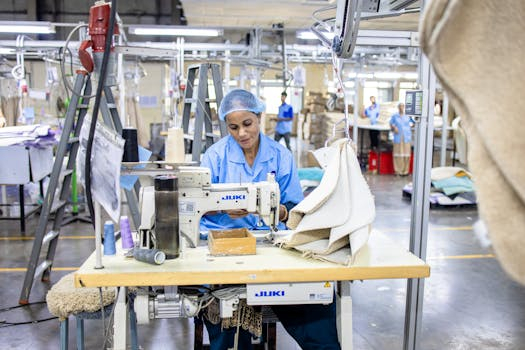The Impact of Automation on Manufacturing Jobs
In the past few decades, technology has rapidly advanced and transformed many industries, including manufacturing. Automation, or the use of technology to control and operate machinery, has significantly impacted manufacturing jobs. While it has brought many benefits, such as increased efficiency and productivity, it has also caused major changes to the workforce. As more and more tasks are being automated, the role of human workers in manufacturing is being reshaped. This article will explore the impact of automation on manufacturing jobs and how it is changing the landscape of the industry.
The Rise of Automation in Manufacturing
Automation in manufacturing has been around for quite some time. The first industrial robots were introduced in the 1960s, and since then, the use of automation has rapidly increased. Today, it is estimated that over 2 million industrial robots are in operation worldwide, and this number is only expected to grow in the coming years.
One of the biggest drivers of this growth is the advancement of technology. With the development of more sophisticated machinery and the integration of artificial intelligence, automation has become more accessible and cost-effective for manufacturing companies. This has allowed them to automate more processes, leading to increased productivity and lower production costs.
The Benefits of Automation in Manufacturing
Increased Efficiency and Productivity
One of the most significant benefits of automation in manufacturing is the increase in efficiency and productivity. With machines taking over repetitive and tedious tasks, human error is significantly reduced. This leads to faster production times and higher-quality products. Moreover, machines can operate 24/7 without breaks, resulting in increased output.
Cost Savings
Automation can also bring significant cost savings to manufacturing companies. By automating certain processes, labor costs are reduced, and production costs are lowered. Additionally, since machines are more precise and consistent than humans, there is less material wastage, leading to further cost savings.
Improved Safety
Another benefit of automation in manufacturing is improved safety. By automating dangerous tasks, workers are protected from potential hazards on the job. This can lead to a decrease in work-related injuries and illnesses, resulting in a safer and healthier work environment.
The Changing Landscape of Manufacturing Jobs
While automation brings many benefits to the manufacturing industry, it has also brought significant changes to the workforce. As more and more tasks become automated, the role of human workers is evolving. Many traditional manufacturing jobs, such as assembly line workers, are being replaced by machines. This has led to a decrease in the number of manufacturing jobs that require low-skilled labor.
On the other hand, the demand for workers with advanced skills in technology and programming has increased. As machines become more complex, there is a need for skilled workers who can operate and maintain them. This has led to the creation of new job roles, such as automation engineers and technicians.
The Future of Manufacturing Jobs
With the continuous advancement of technology, it is essential for workers in the manufacturing industry to adapt and stay updated with the latest skills. Tasks that were once done by humans are now being automated. While this may mean that some traditional manufacturing jobs will become obsolete, it also means that new and more advanced job roles will emerge.
Moreover, the integration of artificial intelligence in machines will likely lead to the creation of “smart factories”, where machines can operate and make decisions autonomously. This will require workers who can manage and program these machines and work alongside them, rather than being replaced by them.
Conclusion
In conclusion, the impact of automation on manufacturing jobs cannot be ignored. While it has brought many benefits, such as increased efficiency and productivity, it has also caused significant changes to the workforce. As technology continues to advance, it is crucial for manufacturing companies and workers to embrace automation and adapt to these changes. By doing so, we can ensure the continued growth and innovation of the manufacturing industry.










